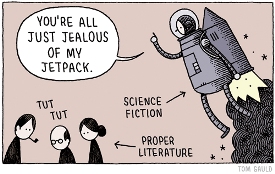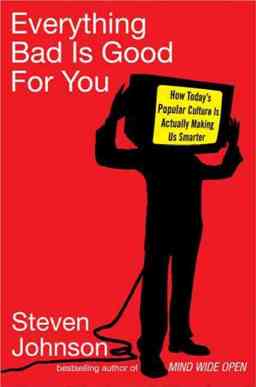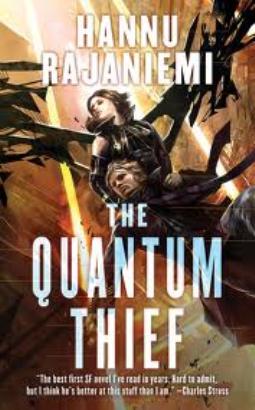The Serious Novel isn’t Dead, It Won

This week Will Self, one of the UK’s stars of Literary Fiction, told everybody that the “novel is dead.” Just seeing the title of his piece was enough to make me bring up Amazon and check… but no, the books hadn’t gone, replaced by app downloads and cheap white goods. So, what did he actually mean?
Reading the actual article, I discovered he meant “the literary novel is dead”, plus — as far as I can tell from what’s a rather long piece that seems to have been savaged by a feral Thesaurus — difficult Art in general:
the hallmark of our contemporary culture is an active resistance to difficulty in all its aesthetic manifestations, accompanied by a sense of grievance that conflates it with political elitism.
You might guess that my gut reaction is, “I CAN’T HEAR YOU OVER THE SOUND OF THE WAR TRUMPETS HANG ON LET ME PUT DOWN MY AXE OMG WATCH OUT! ORK! GOT HIM! Now what were you saying Mr Self?”
What I mean is:
Just as authors have artistic integrity, readers have audience integrity. Sure, you wrote something you think is smart. However, that doesn’t give you a right to other people’s time and brainspace.
The sense of grant-grubbing entitlement from LitFic authors would be distasteful — nay, comic — if it came from any other sector, say, from typewriter manufacturers: “Wah wah, nobody wants typewriters anymore but they’re culturally vital where’s my grant and my tenure teaching typewriter engineering to young people?”
However, having ranted at my friends and calmed down a bit, I’m reminded of Virginian Nicholson’s observation near the end of Among the Bohemians: Experiments in Living 1900-1939.
Among the Bohemians covers the culture of the Bohemians — early 20th century hippies, if you like, rather than the 15th-century chaps with war waggons and a taste for early Protestantism — and how they tried to carve out bubbles of creativity, informality and, essentially, fun. Her point was that the Bohemians haven’t gone, rather, they won. Regardless of political affiliation, we wear jeans, dress casual when we can, cuddle our kids, refer to each other by first name, drink in mixed company, and don’t worry much about respectability. We also seek out pleasure for its own sake, and find modes of creative expression without much worrying what the neighbours think.

In the same way, the popular culture so derided by Will Self actually now reflects its production by educated people who cut their teeth on “difficult material” and take their own art seriously. Just look at the way TV has gained layers and complexity in the last few years. Contrast Cagney and Lacey with CSI, or — if we’re talking lighter material — The Rockford Files with Castle. Compare the different versions of Battlestar Galactica, or the original Star Trek with Babylon 5, or Babylon 5 with Firefly. Compare Xena with Game of Thrones!
Speculative Fiction — the stuff of Black Gate, let’s call it SF&F — has always been well ahead of the difficulty curve.
For a start, the original SF&F writers didn’t know they were in a genre ghetto. For example, Robert E Howard and Clark Ashton Smith both thought of what they did as literature and both also wrote poetry. H.G Wells and George Orwell, meanwhile, were literary writers by any reasonable measure.
It’s also true that SF&F has always been “difficult”, since by definition it forces the reader to consider other worlds and to question their certainties about the human condition and humanity itself. If HP Lovecraft, for instance, seems like a light read now, it’s because the buttons he pushed — The Universe is HOW big and HOW Old? — were long ago eroded by familiarity. The action in Robert E Howard’s Conan yarns is so mesmerising, we often miss the uncomfortable questions he raises about civilisation and the Tide of History.
However, it’s in modern SF&F that we see all the markers of Literary Fiction scattered around the feet of goblins and killer robots in corsets:
- Nuanced no-win moral world? See Harry Dresden. Decisions don’t come easy to Jim Butcher’s protagonist (who also rides a reanimated dinosaur skeleton at one point).
- The Inherent Tragedy of the Human Condition? That would be GRRM’s Game of Thrones or anything by Joe Abercrombie.
- Playing with language? Try Charles Stross’s Halting State written — so help me — in 2nd-person-present. Or, of course, Ian Banks’s phonetic passages in The Bridge.
- Surrealism? One of the stock tricks of SF&F is to do weird stuff and make it feel real. Try an entire civilisation of werewolves as depicted in Wolf Age by James Enge.
- Seemingly “random walk” plots? Heinlein’s Friday is an early example. Pat Rothfuss’s Name of the Wind is a modern and best-selling example.
- Taboo breaking? How about any urban fantasy after Anita Blake…?
And so on.
How could this not be so? Not only do writers usually read beyond their genres, so do readers. And two of the defining attributes of the SF&F community are education and intelligence. In other words, geeks writing for geeks are always going to produce “difficult” fiction. Moreover, we’re going to make like Vikings and repurpose whatever literary techniques we get our hands on.
SF&F has developed in parallel with Literary Fiction, has borrowed from it as much as it borrowed from us. The end result is that we’re all writing Literary Fiction today.
So good news, Will! The “difficult novel” isn’t dead, borrow a rocket pack and come and join us!

Oh, you don’t want to get your designer jeans dirty with stardust and dragon guano?
Which takes us to the real motivation behind the complaints of Mr Self and his ilk. In that same article he writes:
In the early 1980s, and I would argue throughout the second half of the last century, the literary novel was perceived to be the prince of art forms, the cultural capstone and the apogee of creative endeavour… The literary novel as an art work and a narrative art form central to our culture is indeed dying before our eyes.
It’s not the death of “difficult fiction” he’s bemoaning; it’s that his own particular genre — let’s call it LitFic to distinguish it from “fiction that is literary” — has lost its cultural hegemony!
Note that Mr Self doesn’t call for LitFic writers to write better, more relevant novels, engage the new knowledge worker caste — us geeks — and thus rescue the genre. I can see two reasons why not:
First, what is LitFic anyway? If all genres have Literary aspirations, then how do we define LitFic? As “literary fiction” that doesn’t fit a particular genre? Good luck with that.
Second, a truly “relevant” literature would surely explore the pressing issues around the collision of human nature with hyper-modernity: What is it to be human? Where does a person end and technology begin? What meaning will we find in a post-scarcity world? Are technological civilisation and the survival of the species mutually exclusive? Are megacorporations institutionally sociopathic?
Literary Fiction needs a new HG Wells or George Orwell!
Except that ship has sailed… or should I say that shuttle has flown.
When modern folk want to get to grips with the big questions of modernity, we don’t look to LitFict writers. Their reach is too short. (Will Self, by his own admission, uses a typewriter and finds the Internet too distracting. What can he tell us about the human condition in the 21st century? He’s hiding from it!)
Instead, we pick up something by William Gibson, Charles Stross, Ken Macleod, Ian Banks (with or without the “M”), Hannu Rajaniemi…
Meanwhile, the LitFic writers swagger on, clutching their sense of entitlement like a free lunch ticket. In this at least, Will Self’s article rings true:
The creative writing programmes burgeoning throughout our universities are… a self-perpetuating and self-financing literary set-aside scheme purpose built to accommodate writers who can no longer make a living from their work. In these care homes, erstwhile novelists induct still more and younger writers into their own reflexive career paths, so that in time they too can become novelists who cannot make a living from their work and so become teachers of creative writing.
Now, where did I put down my Axe of Ork-Slaying?
M Harold Page (www.mharoldpage.com) is a Scottish-based writer and swordsman who occasionally gets cross about articles in the Guardian. His creative writing handbook, Storyteller Tools is now available on Amazon.
Mr. Self’s piece is a rambling, incoherent mess. Thankfully, people have more information now and don’t have to rely upon a self- anointed literary elite to tell us what is great fiction.
I agree with your remark that quality SF speaks to the human condition better than the ‘lit fic’ of the last few decades. The issue Self doesn’t address is that the first half of the last century had a large number of superior ‘lit fic’ writers and there are almost none today. That certainly plays a bigger role in this than Harry Potter or the Internet.
Hard art isn’t dead.
I went to go see my national symphony last week to an almost full theatre. They started with an explosive new work that was enjoyed even if everyone was there for the main event of Dvorak’s New World. And indeed even video games (Video games, the pits of cultural endeavour) are increasingly using serious symphonic music on their soundtracks and using the uniqueness of the player experience to tell stories and provoke thought, and tackle current issues, particularly ones of diversity of intent and historical erasure.
Comic books have seriously raised their game at their peaks. Marvel’s Extremis run for Iron Man is just as literary as anything anything I’ve ever read. It deals with the themes of the nature of the scientific mind and scientific personalities, the personal and ethical cost of following the scientific life masterfully.
The “Winter Soldier” Captain America run skilfully explored the experience of the war veteran, the depths of camaraderie, even the nature of the self.
What I believe Mr Self is really winging about is that this makes it harder to affect an air of culturedness. If you want to look at the comic book I’m reading and tell if I’m highbrow or lowbrow you need to know comic books. Same with the computer games. Same with genre novels.
It’s less viable to make a value judgement based on the cover of the book in front of him.
Labels are labels are labels are labels, and I’m not gonna argue Will Self is a genre writer, but the man’s work is often at the more fantastical edge of the mainstream: In Great Apes a man wakes up to find the world run by monkeys, in Cock & Bull men and women grow the opposite sex’s genitals, and The Book of Dave is a straight-up postapocalyptic novel.
Fair dues to you for finishing that article, MHP. If clarity ever becomes a prequisite for good writing (as it always should be, imo) Mr Self may find himself out of a job.